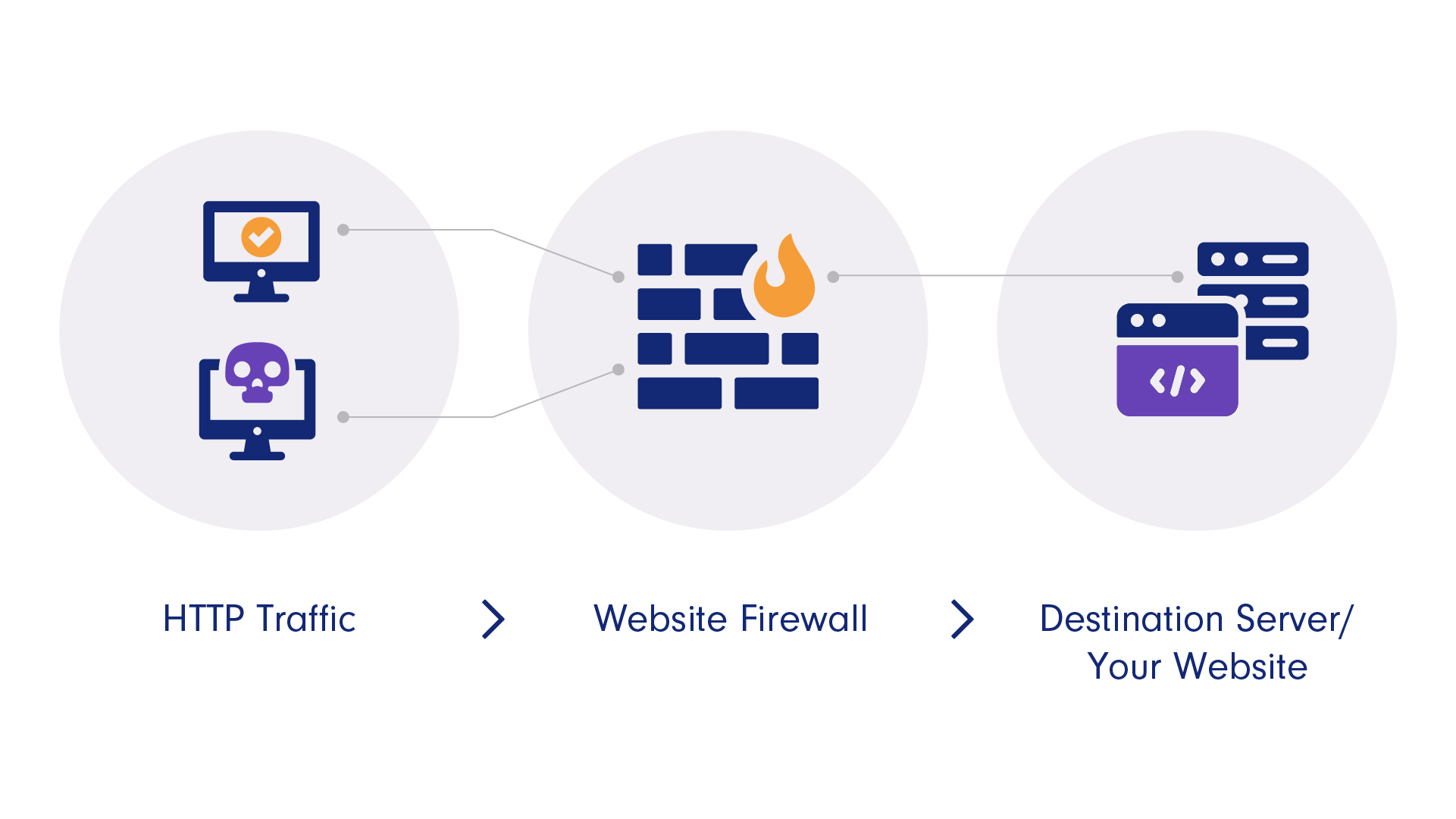How can we help?

Please get in touch using the form below.
3 minute read
A Website Application Firewall, also referred to as WAF, acts as a layer of protection between your website server and HTTP traffic from the internet. In simple terms, a firewall acts as a middleman between the traffic coming from the internet and your website. It aims to protect your website from any potential threats and malicious traffic, which could result in security breaches or downtime.

On a regular website (without firewall protection), traffic can come from anywhere in the world without any filtering. However, for some businesses, such as eCommerce sites or those in IT and Security, this poses too many risks, so a firewall is installed to provide extra protection.
There are WordPress plugins that can also offer a layer of security. However, these tend to be more reactive, dealing with traffic as it reaches your site instead of using advanced monitoring, filtering and IP databases to protect your site from known and potential threats before it even gets to your website.
A good enterprise-level WAF will provide you with a higher level of reactive service. Providers such as Securi keep their own databases of IP addresses, areas and even entire countries that are known to be higher risk and can instantly block these from visiting your site.
You can also choose to filter other areas or countries where your business doesn’t deal directly and where traffic would not be relevant. You might also choose to restrict which IP addresses have access to your website’s admin page and, consequently, your website’s backend to reduce the risk of hackers gaining access and making changes to your website.
Further to this, a good website firewall can also block specific traffic types such as bots, crawlers, and DDoS (Dedicated Denial of Service) attacks – where someone tries to flood a site with traffic to overload the server and bring it down. Modern website firewalls often use sophisticated Artificial Intelligence (AI) and Machine Learning (ML) to predict and learn the behaviours of malicious traffic so that they can further strengthen your website’s defences.
While a WAF won’t eliminate all malicious traffic, it will reduce the risk dramatically. Think of it like a BRITA water filter – you can remove most of the bad stuff, but sometimes a few bits still get through.
Overall, opting for a Website Application Firewall service is a great way to boost your WordPress website’s security while giving you peace of mind that your site will be safe from potentially malicious traffic and attacks.
We hope you found this blog useful. If you’d like more advice about firewall protection for your WordPress website, please drop us an email. Or, if you’d like to stay in the loop with our latest insights pieces, register for our newsletter.


Our friendly team of designers, developers and digital specialists are ready and waiting to help with your website project.